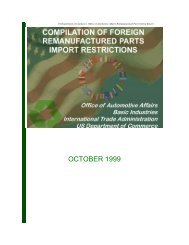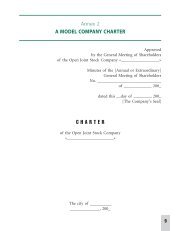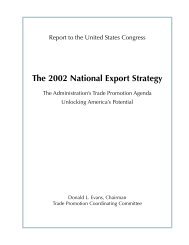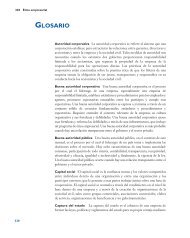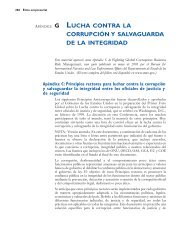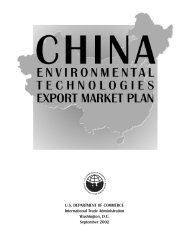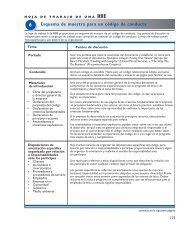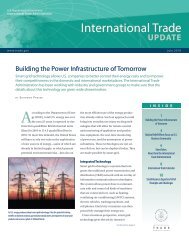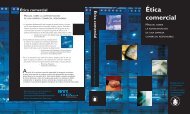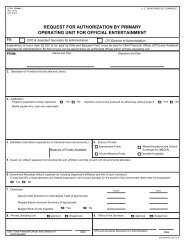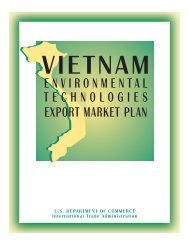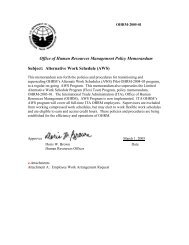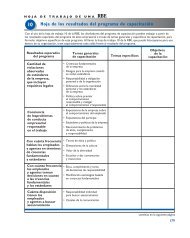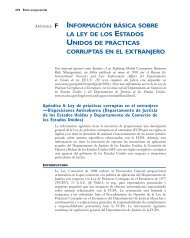Global Steel Trade; Structural Problems and Future Solutions
Global Steel Trade; Structural Problems and Future Solutions
Global Steel Trade; Structural Problems and Future Solutions
You also want an ePaper? Increase the reach of your titles
YUMPU automatically turns print PDFs into web optimized ePapers that Google loves.
In addition to the market-distorting practices identified in this report which affect prices, there are<br />
differences in cost which result from the different endowments of producers around the world. These cost<br />
differences affect international competitiveness in steel production. We will conduct additional research to<br />
document the relative differences in these costs <strong>and</strong> to determine whether cost differences occur through<br />
normal market forces or through government subsidies or other distorting practices. The results of this<br />
research will be published in the update to the steel report in 2001 focusing on the following areas: legacy<br />
costs from downsizing; capital costs; <strong>and</strong> environmental regulation costs.<br />
Provide Faster Relief for Industries,<br />
Workers, <strong>and</strong> Communities<br />
Strengthening the Crisis Response Mechanisms<br />
in the Fair <strong>Trade</strong> Laws<br />
The decline in total steel imports in 1999 was driven by the increase in products subject to AD/CVD<br />
investigations: Imports of hot-rolled steel in 1999 decreased 43 percent from 1998 levels; heavy structural<br />
steel imports decreased 49 percent; <strong>and</strong> cut-to-length plate decreased 57 percent in the same period. These<br />
statistics show that AD/CVD remedies can provide effective relief from a surge of unfairly traded imports.<br />
However, by the time the trade remedy petitions had been filed, there had already been substantial harm to<br />
the U.S. industry. The Administration established an informal group to meet with industry <strong>and</strong> union<br />
representatives to discuss legislative <strong>and</strong> other proposals to address these issues as appropriate.<br />
Within existing laws, the Department of Commerce has also developed a number of initiatives to provide<br />
faster <strong>and</strong> more effective relief under the trade laws.<br />
Reduced Incentives for Increasing Shipments<br />
Before <strong>Trade</strong> Remedies Take Effect<br />
In many instances, import surges intensified after antidumping petitions were announced or filed by<br />
domestic producers <strong>and</strong> continued until the preliminary determinations were published by the Commerce<br />
Department. This occurred as steel traders rushed to “beat the clock” <strong>and</strong> ship greater quantities of steel<br />
before the AD/CVD remedies were put into place. To combat this, Commerce announced two policies<br />
during the steel surge: expediting antidumping investigations, <strong>and</strong> making early critical circumstances<br />
determinations.<br />
Expedited Antidumping Investigations<br />
In response to the tremendous surge of steel imports in 1998, the Commerce Department—for the first time<br />
ever—completed the preliminary determinations earlier than the normal schedule in fifteen antidumping<br />
investigations. Commerce compressed the schedule for its internal work while preserving the statutory time<br />
periods for participation by domestic <strong>and</strong> foreign parties to the proceeding. 1 This enabled Commerce to<br />
provide earlier relief from unfairly traded imports. In addition to instituting this practice, Commerce has<br />
issued a policy bulletin addressing the criteria to be used in deciding when it is appropriate to expedite an<br />
investigation. Because conducting expedited antidumping investigations is a resource intensive process, the<br />
Administration’s budget request for FY 2001 seeks funding for additional Commerce Department resources<br />
to allow the conduct of expedited antidumping investigations.<br />
Early Critical Circumstances Determinations<br />
Where critical circumstances exist, U.S. law <strong>and</strong> the WTO Antidumping Agreement provide for the<br />
imposition of retroactive antidumping measures for a period of ninety days prior to the preliminary<br />
176 <strong>Global</strong> <strong>Steel</strong> <strong>Trade</strong>: <strong>Structural</strong> <strong>Problems</strong> <strong>and</strong> <strong>Future</strong> <strong>Solutions</strong>



